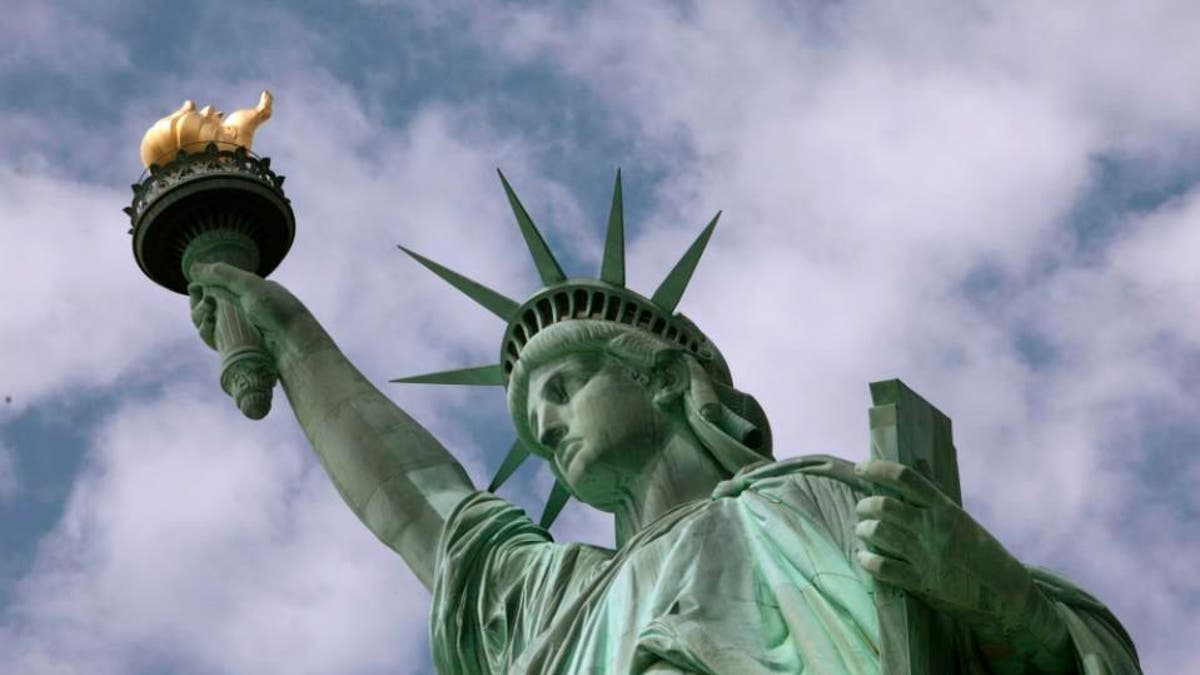
In this June 2, 2009 photo, the Statue of Liberty is seen in New York harbor. The crown is set to open July 4 after being closed since shortly after the Sept. 11, 2001, terrorist attacks. (AP Photo/Richard Drew) (AP2009)
The will to overcome adversity is an American tradition.
For more than 200 years, the notion that anything is possible, by anyone, has emboldened people at every strata of society to pursue a dream and fight for what they believe in. From equal rights activists to entrepreneurs, our nation’s history is rife with stories of people who believed the impossible was possible.
Indeed, a notion that an underdog can win—whatever his definition of winning may be—is part of our country’s DNA.
It’s a truism I know firsthand.
While America’s challenges are very real, and the mountains we all have to climb are in many ways taller and steeper, I refuse to tolerate cynics who declare the American Dream is dead or inaccessible. To them I say there’s has never been a more important time to dream, or a more opportune time to make dreams come true.
I grew up in the working class neighborhoods of Long Island. My family lived in a small house that flooded as often as it rained. We had to rebuild the house ourselves, twice, once after a fire consumed the second floor. Yet despite our circumstances, my mother insisted that I could achieve anything I desired. As a boy, my first dream was to help my family pay its bills. So I did whatever I could.
At 11, I delivered newspapers with a businesslike intensity. At 14, I bagged groceries, bused tables and did odd jobs for the city, like painting fences and digging ditches.
In high school, I dreamed of going to college. I worked at a small corner deli, where I waxed the floor and stocked shelves until the owner decided to sell his business. I had the audacity to ask him to let me buy the deli for a $5,000 loan. He agreed. I worked hard and repaid the loan in less than a year. The deli’s earnings paid for my college education.
After graduation I dreamed of trading in my deli smock for a suit and tie and working for a great company. Eventually, I wanted to run one.
A lot has changed in our country since I began my career at Xerox in door-to-door sales. Some argue that the American Dream has died. The cynics cry that it is no longer possible for someone to rise up from humble beginnings to achieve a truly audacious dream. The chasm between the haves and have-nots is far too wide to cross. Our education systems are too broken and inaccessible. Why try?
Others complain that the definition of success has become too small a bull’s eye to hit. To look at our media, it’s easy to see why success can seem so elusive. Headlines, reality TV and online entertainment position mega-wealth, power and popularity (aka how many people liked your Facebook post) as the most valued measures of success.
While America’s challenges are very real, and the mountains we all have to climb are in many ways taller and steeper, I refuse to tolerate cynics who declare the American Dream is dead or inaccessible. To them I say there’s has never been a more important time to dream, or a more opportune time to make dreams come true.
Never before has it been so simple to get your voice heard and ideas noticed. Technology has democratized business as well as the arts. In the digital age, you don’t need a degree from an Ivy League to run a company. Start it in your dorm. Your garage. On your phone. For aspiring artists and entertainers, YouTube, not Hollywood agents, have birthed singing sensations, while self-published e-books turn unknown writers into best-selling authors. I’ve had the honor of meeting high schools students that have harnessed the power of digital devices to stop bullying and created new ways to diagnose disease. Tools of change are at America’s fingertips.
I would also argue that the definition of success has not narrowed. It’s broadened. This country boasts a significant population for whom purpose—doing work with meaning beyond bringing home a paycheck—is a priority. For these employees and entrepreneurs, success is not just about doing well, but doing good for others. Their altruism is contagious, as is their work ethic.
And there are the millions of Americans that get out of bed every day without fanfare or a sense of entitlement, but with an inner commitment to live up to their responsibilities as well as their potential. Without hope of fame and fortune, these role models strive for more modest but no less valuable dreams: to raise healthy children, work with integrity, pay their bills, save for retirement, and give back to their communities. What’s more, they forge ahead despite inevitable adversities. From one parent households to illness, no one in America is without their private challenges. They are underdogs all, the backbone of this country. And they deserve our collective respect.
Yes, underdogs can still win, as they always have won, by committing to overcoming adversity and pursuing a goal with passion, courage, creativity, grit and humility. These traits have defined the underdog’s journey since the birth of our country, and will continue to pave the path for every American dreamer. That’s why I love America.
